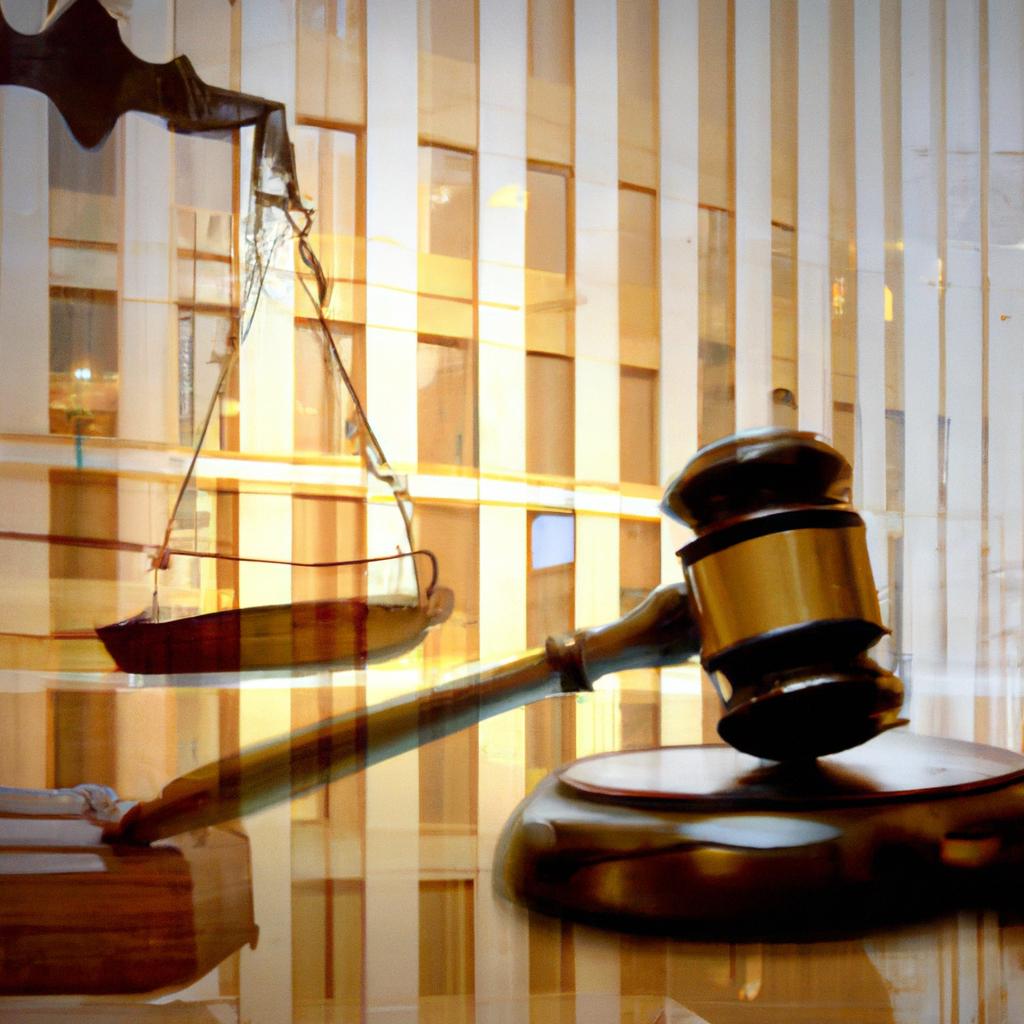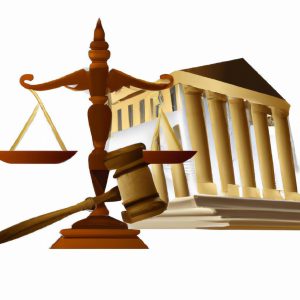As an experienced attorney specializing in estate planning at Morgan Legal Group in New York City, I have often witnessed the peace of mind that comes from having a well-prepared will. A properly drafted will ensures that your desires are carried out exactly as you wish, and can help prevent family disputes and unnecessary legal battles. In order to facilitate the will preparation process, it is essential to have a comprehensive checklist in place to ensure that all aspects of your estate are properly accounted for. In this article, we will guide you through a step-by-step will preparation checklist to help you protect your assets and provide for your loved ones in the most efficient manner possible.
Key Components of a Comprehensive Will Preparation Checklist
When preparing a comprehensive will, there are several key components that should be included in your checklist to ensure that your wishes are accurately reflected and legally binding. These components include:
- Identifying Your Assets: List all of your assets, including bank accounts, real estate, investments, and personal possessions.
- Choosing Beneficiaries: Clearly outline who will inherit your assets and specify any conditions or restrictions.
- Appointing an Executor: Select a trusted individual to carry out the terms of your will and handle your estate.
- Guardianship Designation: If you have minor children, designate a guardian to care for them in the event of your passing.
| Component | Importance |
|---|---|
| Identifying Assets | Crucial for determining the value of your estate |
| Choosing Beneficiaries | Ensures that your assets are distributed according to your wishes |
| Appointing an Executor | Key for managing the will’s execution and estate administration |
| Guardianship Designation | Protects your children and provides clarity on their care |
By incorporating these key components into your will preparation checklist, you can create a comprehensive and legally sound document that accurately reflects your wishes and protects your loved ones. Consulting with an experienced estate planning attorney, like Morgan Legal Group in New York City, can help ensure that your will meets all necessary requirements and provides peace of mind for you and your heirs.

Ensuring Clarity and Specificity in Your Will Document
When it comes to preparing your will document, ensuring clarity and specificity is crucial to avoid any confusion or disputes among your beneficiaries. To help you create a comprehensive and legally-binding will, follow this checklist:
- Identify beneficiaries: Clearly list out who will inherit your assets and specify the share of each beneficiary.
- Assign an executor: Designate a trustworthy person to carry out your wishes and manage your estate.
- List out assets: Provide a detailed inventory of your properties, investments, and valuable possessions.
- Include specific bequests: Specify any special gifts or items you wish to leave to particular individuals.
By following this checklist and consulting with an experienced estate planning attorney, you can ensure that your will document accurately reflects your wishes and provides clear instructions for the distribution of your assets. Contact Morgan Legal Group in New York City for professional legal guidance in will preparation and estate planning.

Navigating Complex Family Dynamics in Will Planning
When preparing your will, it is essential to navigate the complex family dynamics that may come into play. To ensure that your wishes are carried out smoothly, consider the following checklist:
- Identify Key Players: Start by identifying key family members and loved ones who should be involved in the will planning process.
- Communicate Openly: Foster open communication with all family members to avoid misunderstandings and conflicts down the line.
- Consider Potential Conflicts: Anticipate potential conflicts that may arise and address them in your will to prevent disputes among beneficiaries.
| Checklist Item | Action Required |
|---|---|
| Discuss Will with Family | Initiate a discussion with family members regarding your will to ensure transparency. |
| Appoint an Executor | Select a reliable executor who can oversee the distribution of your assets. |

Proactive Steps to Avoid Legal Challenges in Will Execution
When it comes to executing a will, taking proactive steps can help avoid potential legal challenges down the road. Here is a checklist to ensure a smooth and legally sound will execution process:
- Choose the right executor: Select someone trustworthy and reliable to carry out your wishes.
- Clearly outline your wishes: Be specific and detailed in your will to avoid any confusion or disputes among beneficiaries.
- Update your will regularly: Review and revise your will as needed to reflect any changes in your life circumstances or assets.
- Consult with an experienced attorney: Seek legal advice from a qualified lawyer to ensure your will complies with state laws and is legally valid.
| Consultations | Legal Documents |
|---|---|
| Initial consultation with attorney | Will, Power of Attorney, Healthcare Proxy |
| Follow-up meetings as needed | Living Will, Trusts |
By following these proactive steps and having a well-prepared will, you can help prevent any legal challenges and ensure that your final wishes are carried out as intended.
Q&A
Q: What is a will preparation checklist?
A: A will preparation checklist is a comprehensive list of items and tasks needed to create a legally binding will.
Q: Why is a will preparation checklist important?
A: A will preparation checklist ensures that all necessary information and decisions are considered when drafting a will, avoiding potential conflicts and confusion among beneficiaries.
Q: What should be included in a will preparation checklist?
A: A will preparation checklist should include gathering financial information, selecting an executor, appointing guardians for minor children, and clearly outlining the distribution of assets.
Q: How can I start preparing my will using a checklist?
A: Start by reviewing sample will templates and gathering all relevant documents, such as deeds, financial statements, and insurance policies. Then, consult with a legal professional to ensure your will meets all legal requirements.
Q: How often should I update my will preparation checklist?
A: It is recommended to review and update your will preparation checklist every few years or whenever significant life events occur, such as marriage, divorce, birth of a child, or acquisition of new assets.
Q: Are online will preparation services reliable?
A: Online will preparation services can be a convenient option for those with simple estate planning needs, but it is still advisable to seek the guidance of an attorney to ensure your will is legally sound and accurately reflects your wishes.
The Way Forward
As you embark on the important task of preparing your will, remember that a properly crafted document can bring peace of mind and security for you and your loved ones. By following this checklist, you can ensure that your wishes are carried out exactly as you intend. Take the time to review and update your will regularly, as life changes may necessitate revisions. With a well-prepared will in place, you can rest assured that your legacy will be protected for generations to come. Happy planning!
 Preparing for the future is an important aspect of life. As we get older and accumulate assets, it becomes necessary to plan for what will happen to them after we pass away. This is where will preparation comes into play. A will is a legal document that outlines how you want your assets to be distributed after your death. Having a will in place can provide peace of mind for you and your loved ones. However, creating a will can be a complicated process, and it’s important to make sure you have everything in order. In this article, we’ll discuss the essential items that should be included in a will preparation checklist.
Preparing for the future is an important aspect of life. As we get older and accumulate assets, it becomes necessary to plan for what will happen to them after we pass away. This is where will preparation comes into play. A will is a legal document that outlines how you want your assets to be distributed after your death. Having a will in place can provide peace of mind for you and your loved ones. However, creating a will can be a complicated process, and it’s important to make sure you have everything in order. In this article, we’ll discuss the essential items that should be included in a will preparation checklist.
1. Identify your assets
The first step in preparing a will is to determine what assets you have. These can include property, vehicles, investments, bank accounts, and personal belongings. It’s essential to make a list of all your assets and their approximate value. This information will help you decide how you want your assets to be distributed.
2. Choose an executor
An executor is a person responsible for handling your affairs after your death. They will manage the distribution of your assets and ensure your wishes are carried out. It’s crucial to choose someone trustworthy and capable of handling the responsibilities of an executor. This could be a family member, friend, or a professional such as a lawyer or accountant.
3. Appoint a guardian
If you have minor children, it’s essential to appoint a guardian in your will. This person will be responsible for taking care of your children in the event of your death. It’s crucial to have a discussion with the guardian beforehand to ensure they are willing and capable of taking on this role.
4. Consider beneficiaries
A beneficiary is a person or organization that will receive your assets after you pass away. It’s crucial to think carefully about who you want to include as beneficiaries in your will. You may choose to leave your assets to your family, friends, charitable organizations, or a combination of them. It’s also important to specify what each beneficiary will receive to avoid any confusion.
5. Specify how you want your assets to be distributed
Once you have identified your assets, executor, guardian, and beneficiaries, it’s time to determine how you want your assets to be distributed. You can either distribute your assets evenly or specify different percentages for each beneficiary. It’s essential to be clear and specific in your instructions to avoid any legal disputes after your death.
6. Consider alternate plans
In some cases, your executor, guardian, or beneficiaries may pass away before you do. To avoid any complications, it’s crucial to have alternate plans in place. For example, you can appoint a backup executor or guardian, or specify alternate beneficiaries. Having these provisions in your will can ensure that your wishes are still carried out even if certain individuals are no longer able to fulfill their roles.
7. Review and update regularly
It’s important to review and update your will regularly, especially if there are any significant changes in your life. For example, if you get married, divorced, have a child, or acquire new assets, it’s essential to revisit your will and make necessary changes. It’s also a good idea to review your will every few years to ensure it still reflects your wishes.
Benefits and practical tips for will preparation
Having a will in place offers peace of mind, knowing that your assets will be distributed according to your wishes. It also relieves your loved ones from the added stress of dealing with legal disputes after your death. Here are a few practical tips to keep in mind while preparing your will:
1. Seek professional help
Creating a will can be a complex legal process, so it’s recommended to seek professional help. An experienced estate attorney can guide you through the process and ensure your will is valid and follows all legal requirements.
2. Keep copies of your will in a safe place
After your will is finalized, it’s crucial to keep copies in a safe place. This could be a safety deposit box, a fireproof safe, or with your attorney. You should also inform your executor and loved ones of the location of your will.
3. Be clear and specific
As mentioned earlier, it’s essential to be clear and specific in your instructions. Avoid using vague language or leaving room for interpretation to prevent any potential legal disputes.
Case studies
To further understand the importance of will preparation, let’s look at two case studies:
1. John had a will in place which stated that all his assets would be left to his wife, Jane. After John’s death, it was discovered that he had not updated his will to include their daughter, who was born a few years before his passing. Jane inherited everything, leaving their daughter with nothing. This could have been avoided if John had reviewed and updated his will regularly.
2. Sarah had a detailed will that outlined how she wanted her assets to be distributed. However, she did not seek professional help and unknowingly left out a crucial step in the will preparation process. After her death, her family had to go through a lengthy and expensive legal process to validate and execute her will.
First-hand experience
One person shares their experience of creating a will:
“I always thought creating a will is something I could put off until I got older. However, after a close friend passed away suddenly and didn’t have a will, I realized the importance of having one in place. It can be overwhelming and emotional to think about, but ultimately, it gave me peace of mind knowing my wishes were legally documented. I also found it helpful to review and update my will every few years to ensure it reflects any changes in my life.”
In conclusion, will preparation is vital for anyone looking to secure their assets and ensure their wishes are followed after their death. By following the checklist and tips mentioned above, you can create a valid and comprehensive will that will provide relief to your loved ones in a difficult time. Seek professional help if needed, and don’t forget to review and update your will regularly.







